Plastic Free July Activities and Ideas Beyond Reducing Single-Use Plastic
Plastic Free July first started in 2011.
Updated July 1 2025, 4:29 p.m. ET
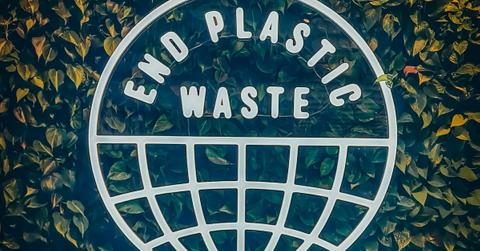
During the seventh month of every year, climate warriors, aspiring environmentalists, and everybody in between are invited to observe Plastic Free July — an annual month-long campaign for individuals to reduce their single-use plastic use.
And while Plastic Free July is a fantastic initiative that inspires many people to begin their zero-waste journeys, it’s important to remember that reducing plastic consumption is just one small part of living sustainably.
Whether this is your first Plastic Free July or you’ve been celebrating the holiday since it first began in 2011, here are seven ideas and activities to help take your Plastic Free July to the next level.
Shop more thoughtfully — or stop shopping.
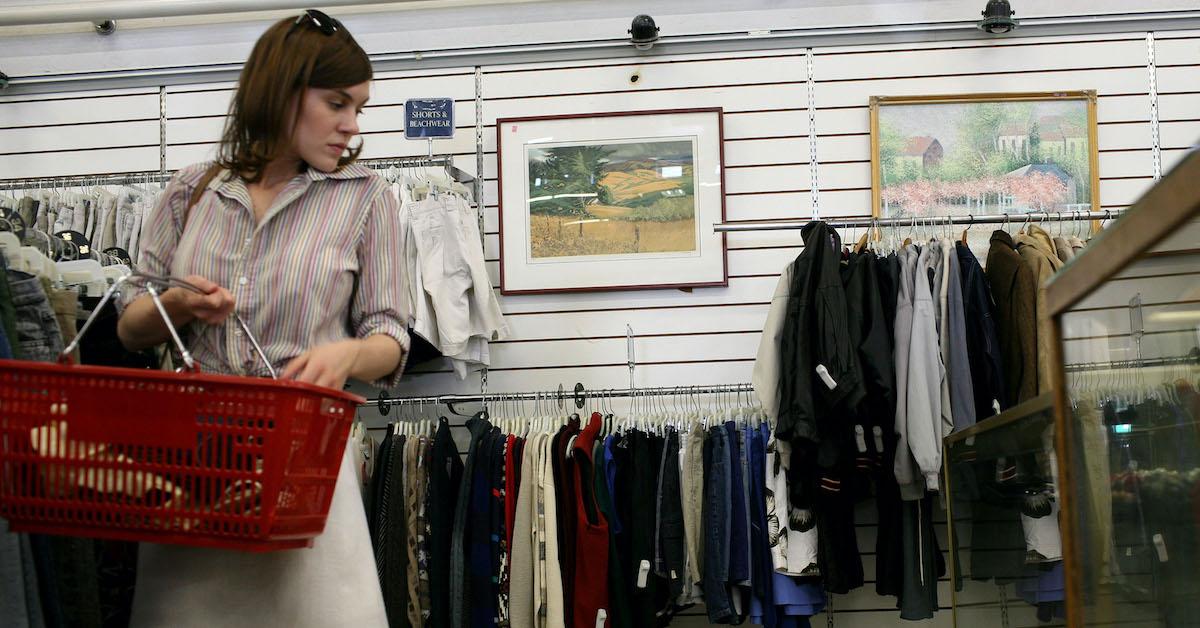
During Plastic Free July, you’ll probably see a lot of companies pushing their plastic-free alternatives, from reusable storage bags to compostable plates to cleaning products. But the point of Plastic Free July is to consume less, not more — so don’t be fooled by the ads. Try to use up everything you have before investing in plastic-free, reusable, or eco-friendly alternatives.
Also, remember that many items billed as single-use, from Ziplocs to plastic straws, can be used over and over again. Before making a purchase — or tossing anything — take a moment to think if there’s a better solution.
Additionally, consider participating in a no-buy month or shop stop alongside Plastic Free July to reduce your environmental impact further this month.
Host a beach or park cleanup.
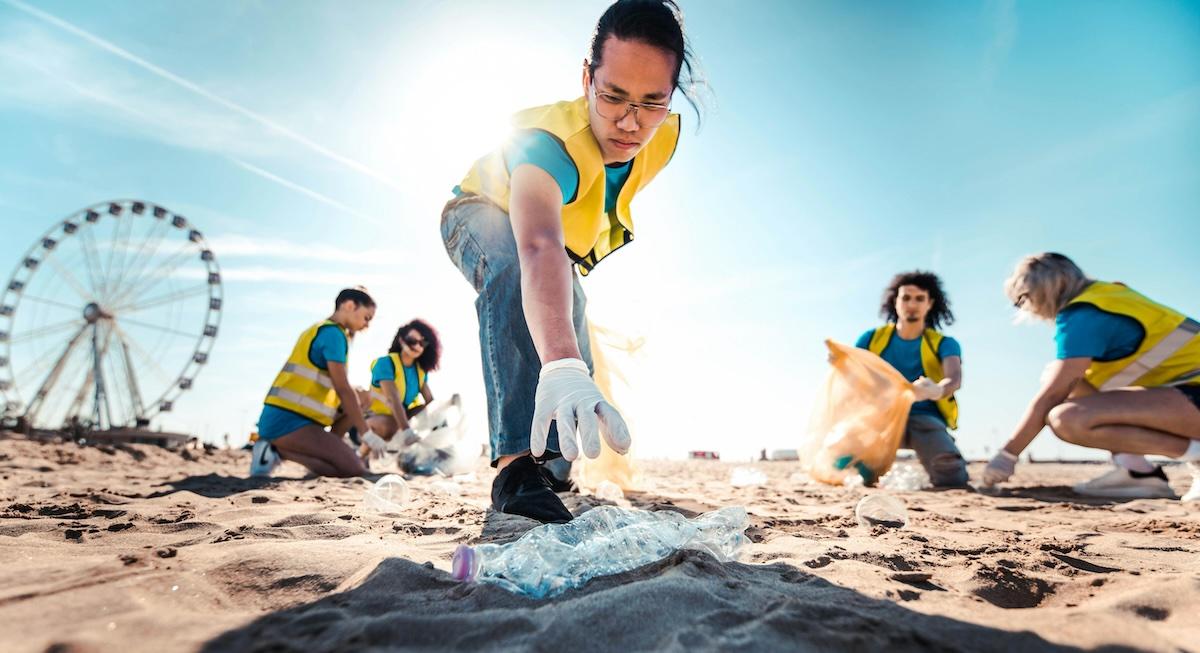
Get a group of friends together and host a beach or park cleanup. Not only would this be helping combat plastic pollution in public areas, but it would also make people more aware of just how harmful plastic is to the environment.
You can also combine a cleanup with a sustainability info booth or picnic.
Read up on intersectional environmentalism.
Caring about the climate crisis means caring about the people who are most disproportionately affected by it. And we can’t truly protect the planet until we protect all the people on it, especially marginalized groups, such as BIPOC communities and low-income communities.
We suggest starting by following intersectional environmentalists and climate justice accounts on social media and reading books about diversity in the climate movement.
Climate communicator Summer Dean, aka Climate Diva, recommended the following books to Green Matters readers in an interview: Black Nature, Braiding Sweetgrass, and There’s Something In The Water.
Eat more plants.
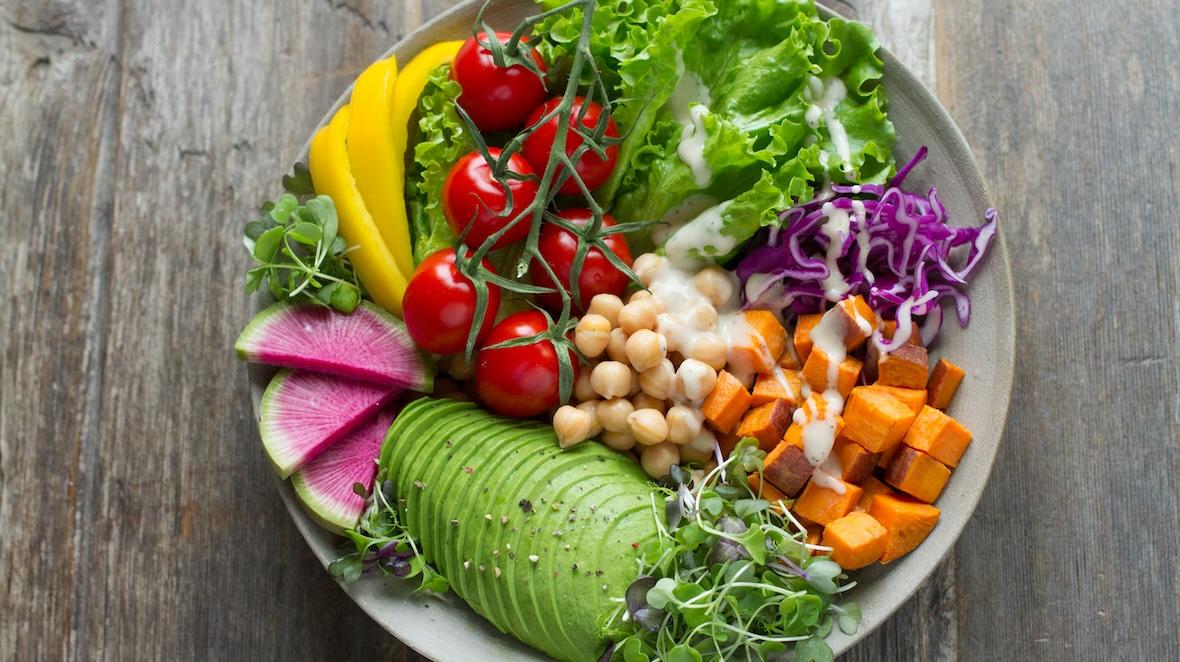
Plastic Free July is all about reducing your environmental footprint — and according to a landmark 2018 study out of the University of Oxford, the best way to do so is by removing meat and dairy from your diet. The animal agriculture industry is responsible for immense greenhouse gas emissions, pollution, land use, water use, cruelty, and more, so even though we don’t always see the waste when we buy animal products — from meat to eggs to leather to wool — it’s there, just behind the scenes.
“A vegan diet is probably the single biggest way to reduce your impact on planet Earth, not just greenhouse gases, but global acidification, eutrophication, land use and water use,” author Joseph Poore told The Guardian at the time. Fortunately, we have plenty of guides to eating more plant-based foods on Green Matters.
Buy locally-grown and organic food (and goods) — when possible.
Purchasing food that was grown locally (or at least domestically) can also have a lower environmental impact, as it doesn’t have to travel far to get from the farm to your plate. Additionally, organically-grown produce uses no pesticides (which can harm the soil) and often less water than conventionally-grown produce.
The same goes for clothing, bedding, home decor, and more — shopping from a local artisan, small business, or secondhand store is generally better for the environment than shopping from Amazon. Of course, this isn’t always possible — but making shopping local a goal can be a great way to guide your purchases, even if you sometimes succumb to Amazon.
Upcycling Art Projects
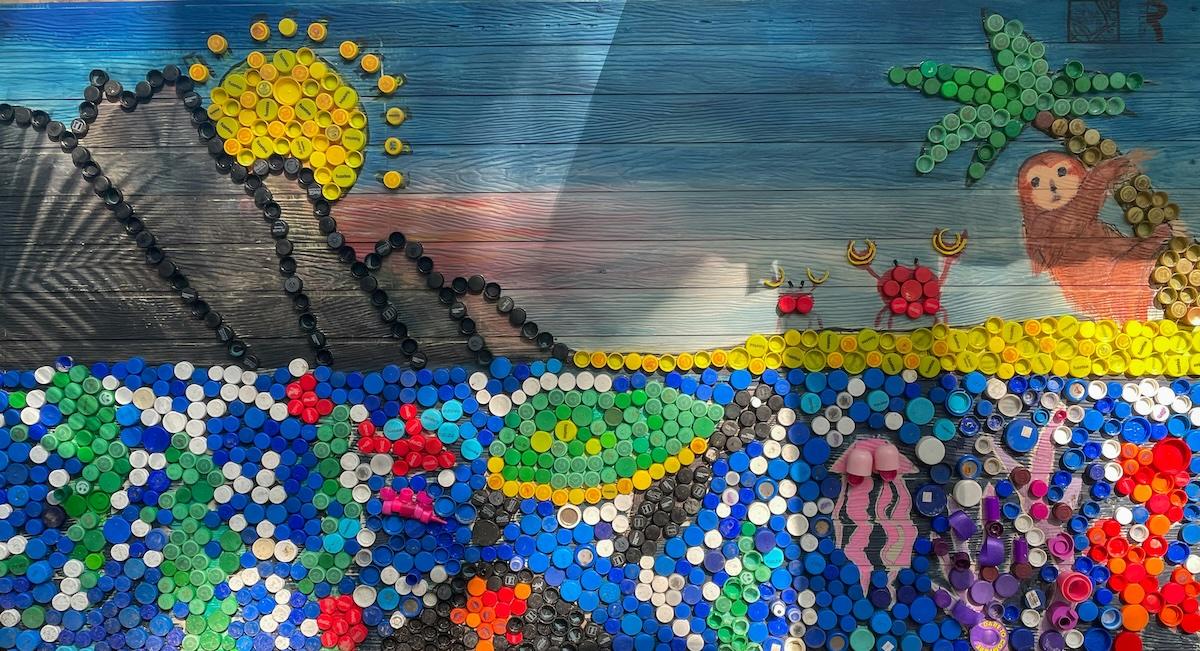
Turn plastic waste into art pieces to raise awareness.
This could include plastic bottle planters, plastic bag weaving, recycled wind chimes, or CD sun catchers.
Write to the people in power.
While individuals reducing their plastic use is awesome, when governments and corporations regulate plastic use (and other forms of pollution), it can make an even greater impact. Write to your elected representative, other government officials, corporations, and even small businesses, and ask them to enact more eco-friendly policies and practices, like eliminating plastic pollution, and beyond.
Or, join a climate protest.
After all, fossil fuel companies, corporations, and governments are the reason that single-use plastic has become such a huge part of day-to-day life — and the ocean, unfortunately — so they’re the ones who should have to make changes.
We just need to hold them accountable.